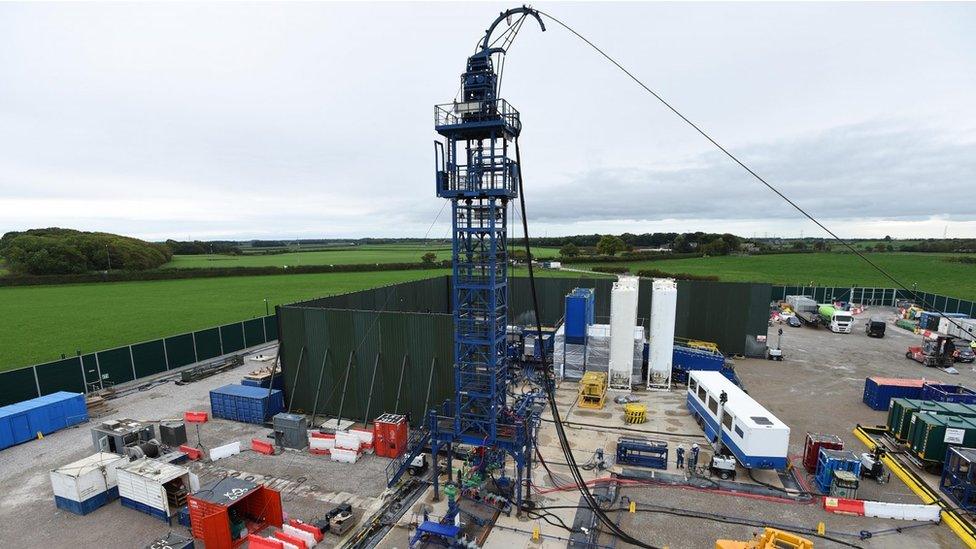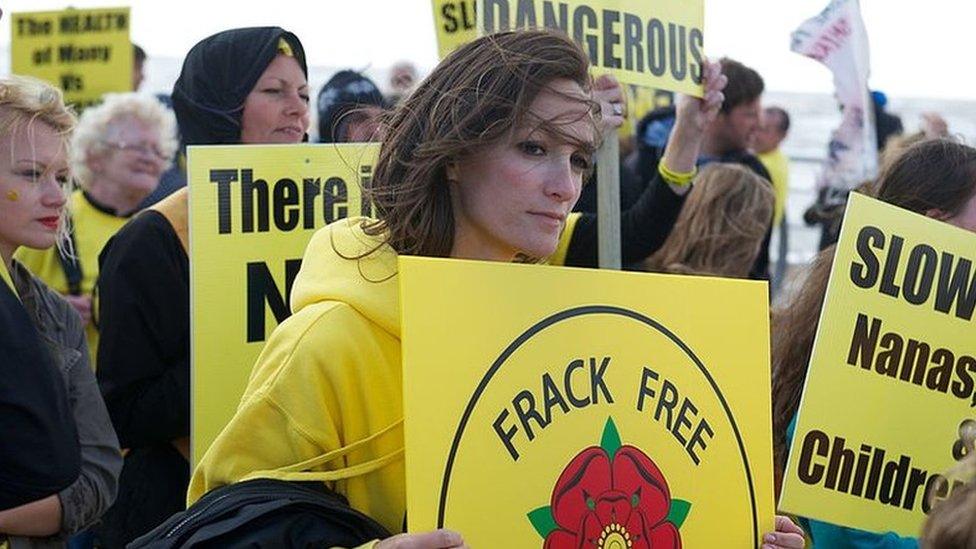Fracking: I'd allow drilling in my back garden, says Jacob Rees-Mogg
- Published
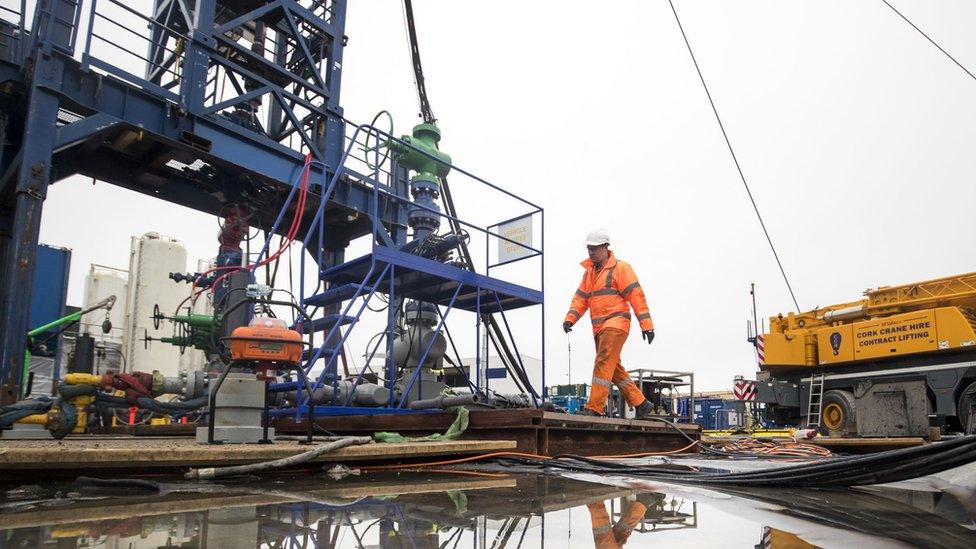
Business Secretary Jacob Rees-Mogg has said he would welcome shale gas fracking in his back garden after a ban on the contentious process was lifted.
He told a Tory conference event he would be "delighted" to allow fracking, particularly if he got "royalties".
Last month the UK government ended the fracking ban in England as part of its plan to limit rising energy costs.
But Prime Minister Liz Truss has said fracking will only resume where there is local consent.
Some Conservative MPs, environmental groups and residents have opposed the return of fracking, which is a technique for recovering gas and oil from shale rock.
Fracking was halted in 2019, external following opposition from environmentalists, and local concerns over earth tremors linked to the controversial practice.
With the energy crisis worsening globally, Ms Truss's government has backed fracking as a way to boost the UK's domestic gas supplies.
Speaking at the Conservative Party's annual conference in Birmingham, Mr Rees-Mogg was asked about community consent for energy projects.
So far, ministers have not said specifically how the government would measure or obtain local support for fracking.
Sharing his thoughts on fracking, the Tory MP for North East Somerset said oil and gas companies could "go around, door to door, as politicians do at elections and ask people if they would consent".
"Then they have to go around to an identifiable community and if they get 50% plus one in favour then they should be able to go ahead," he told the event, hosted by the Telegraph newspaper.
To incentivise support for fracking, he suggested compensation and "a royalty for people where the shale gas comes from".
Mr Rees-Mogg said it was "early days" but was not keen on holding local polls on the fracking, arguing that "turnout in local referendums could be very low so how much real validity would that give you as to consent".

Business Secretary Jacob Rees-Mogg said he would allow fracking in his back garden
As for when mining for shale gas could start again, Mr Rees-Mogg said the government was reviewing the level of seismic activity - earthquakes - allowed at sites.
When asked if he would allow fracking in the back garden of his home in Somerset, Mr Rees-Mogg said "yes, of course I would".
"I would be delighted, particularly if I get these royalties," said Mr Rees-Mogg, whose Somerset residence is Gournay Court, a Grade-II listed building in the north of the county.
Pointing to the audience, the host of the event, journalist Christopher Hope, asked Mr Rees-Mogg whether they should be "ok" with fracking in their back gardens.
Mr Rees-Mogg said: "If we do what I'm suggesting on shale gas, you will be doing a public service by having it in your back garden, but you also get paid for it. So both the country wins and you win."
He said it was only "the socialists" and Green Party MP Caroline Lucas who opposed fracking, adding: "Well that makes my heart bleed."
Later, in a speech to the Conservative conference, Mr Rees-Mogg admitted "not everybody is keen" on fracking and stressed that local support was of "fundamental importance".
But he said the Conservatives were prepared to take "tough decisions that were not immediately popular" on energy.
Speaking on the main stage at the conference, Mr Rees-Mogg announced the UK would build a prototype nuclear fusion power plant - the "first of its kind" - in Nottinghamshire by 2040.
Fracking in the UK has been a controversial subject within local communities and amongst MPs due to its association with minor earthquakes.
In 2019, at oil and gas exploration company Cuadrilla's fracking site in Lancashire, more than 120 tremors were recorded, external - although most were too small to be felt.
When lifting the ban last month, the government published a new review, external, commissioned in April, from the British Geological Survey (BGS), which considers any changes to the science around the practice.
On the risk of larger tremors from fracking, the report concluded: "Forecasting the occurrence of large earthquakes… remains a scientific challenge for the geoscience community."
Related topics
- Published22 September 2022
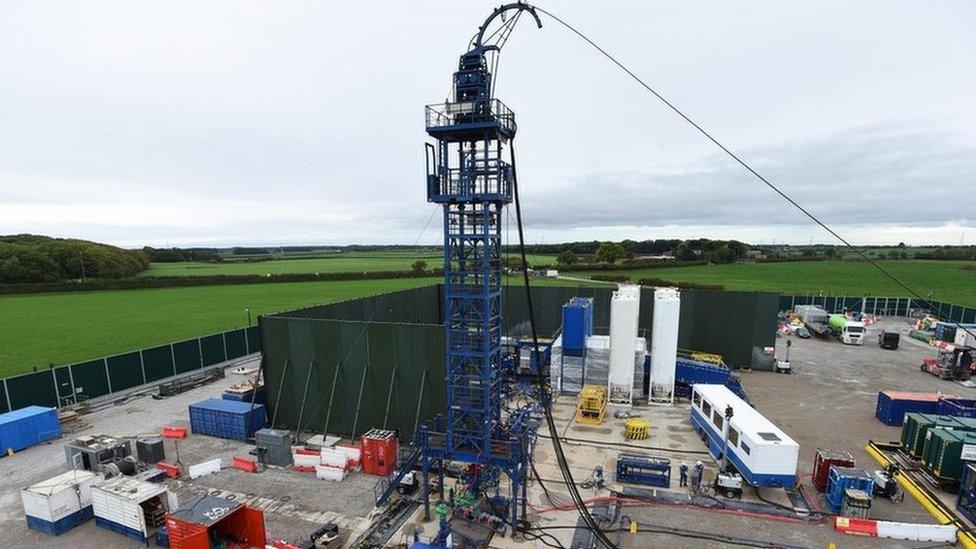
- Published22 September 2022
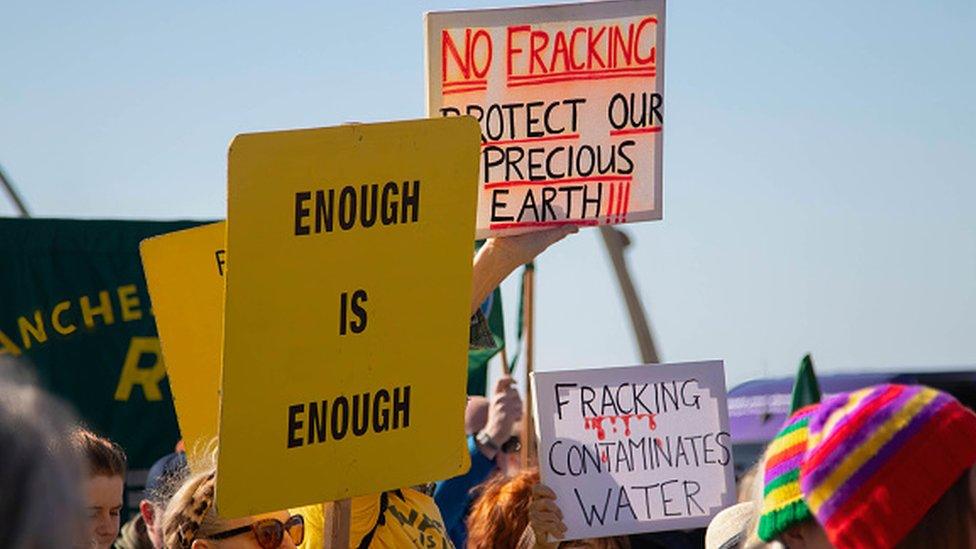
- Published28 September 2022
